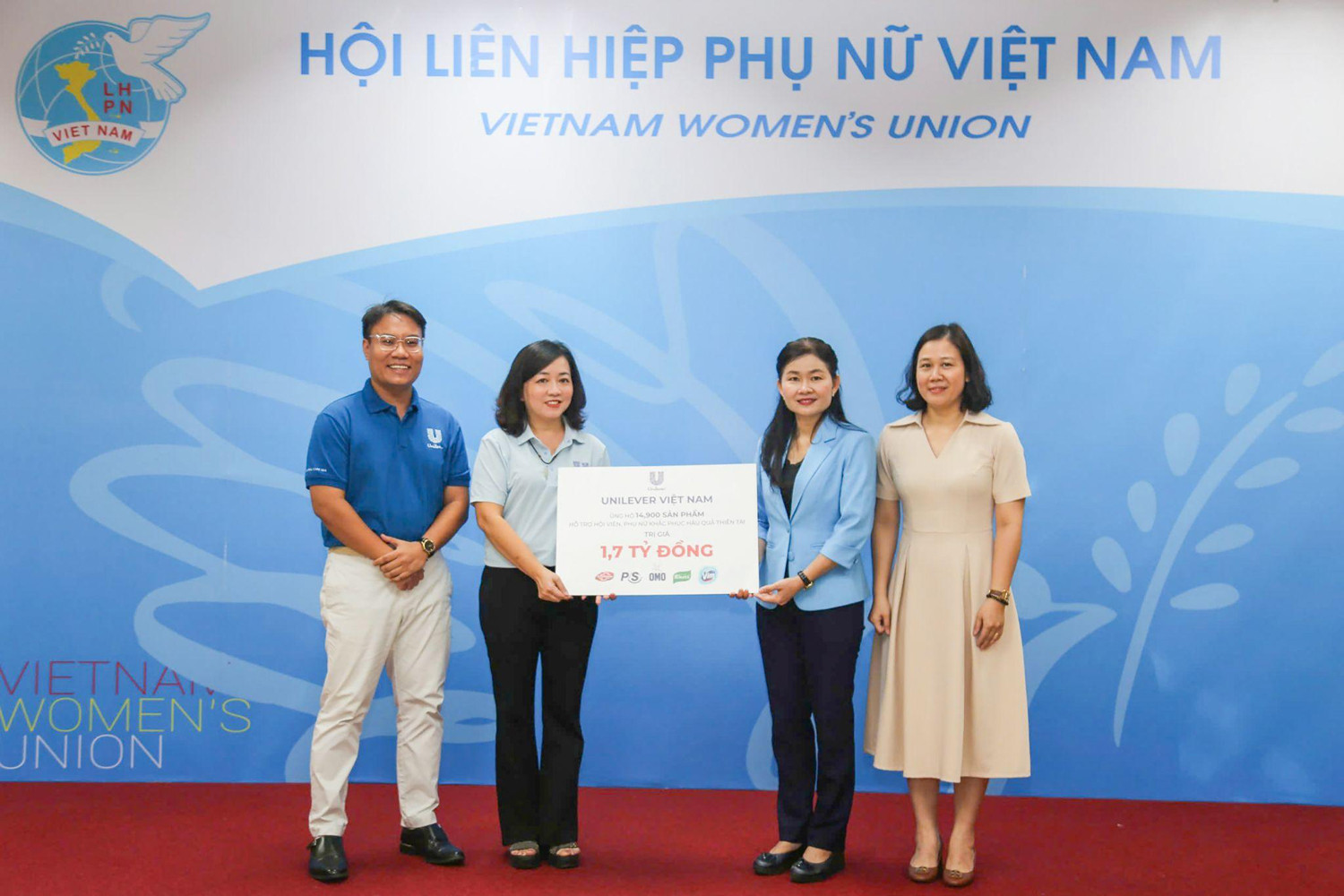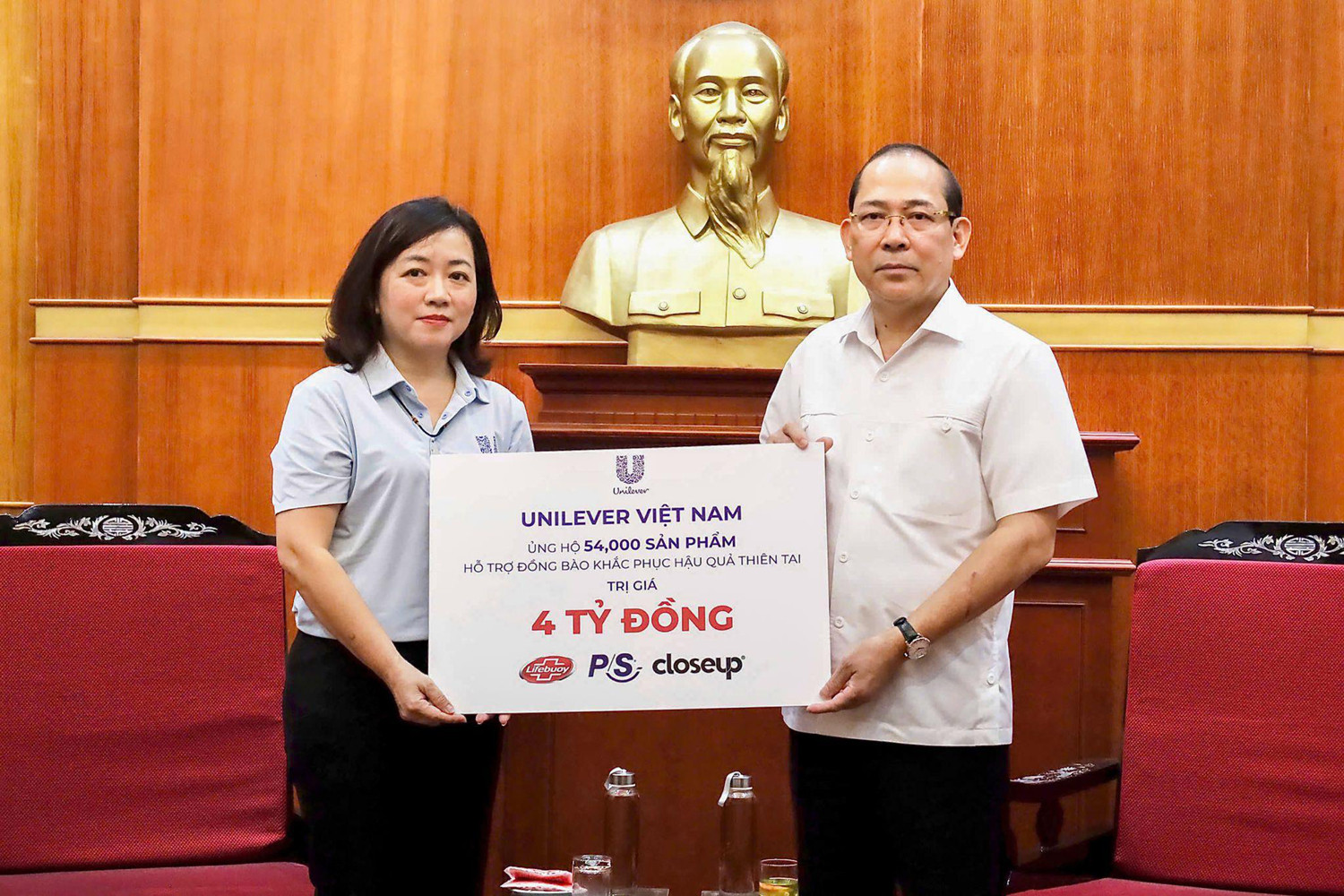Families seek solutions to economic hardships
Nearly a month after Typhoon Yagi struck northern Vietnam, its devastating effects continue to affect thousands of lives. The typhoon has left communities grappling with economic losses, health challenges, environmental degradation, and threats to livelihoods.
According to the Ministry of Planning and Investment, by September 27th, preliminary estimates show economic losses amounting to over 81 trillion VND ($3.22 billion). More than 282,000 houses were damaged or destroyed, 285,000 hectares of rice, crops, and fruit trees were flooded or ruined, and 11,832 aquaculture cages were damaged or swept away. Many households were forced to evacuate due to flooding, leaving thousands without homes or livelihoods.
In response to this dire situation, beyond immediate relief, businesses and authorities have launched long-term, sustainable recovery programs. One such initiative is the "Women Do Business" program, jointly run by Unilever Vietnam and the Vietnam Women's Union since 2020. This program equips women with entrepreneurial knowledge and skills, promoting financial independence and improving their quality of life.

The program will continue for the next 6 to 12 months, focusing on assisting women in the northern region, especially those impacted by Typhoon Yagi, to rebuild their lives and recover economically.
Landslides and flash floods: Prevention is better than cure
Forests play a vital role in preventing floods, soil erosion, and landslides. Rainfall in forested areas is more likely to be absorbed by the canopy and soil, reducing runoff during the rainy season. However, recent landslides and flash floods have severely affected the environment, prompting the need for urgent reforestation efforts. These initiatives will help improve air quality, reduce pollution, and prevent soil erosion, mitigating the long-term impact of natural disasters.
Since 2019, the OMO brand has collaborated with the Ministry of Natural Resources and Environment to launch the "For a Green Vietnam" program, with a commitment to plant 1 million trees by 2025.
By the end of 2023, over 630,000 trees had been planted, and 80,000 seeds sown across 21 provinces and 10 national parks. This initiative will continue, with plans to plant 300,000 more trees in areas affected by natural disasters and climate change, helping to restore ecosystems, protect biodiversity, and support the livelihoods of vulnerable communities.
Caring for and improving community health

Healthcare access in the northern provinces, particularly in areas severely impacted by floods in Lao Cai, Yen Bai, Thai Nguyen, and Tuyen Quang, has been significantly challenged.
The Central Hospital of Tropical Diseases reported an increase in leptospirosis cases, a serious disease that can lead to kidney failure. Contaminated water, food, and poor sanitation following the floods have increased the risk of disease outbreaks.
Dr. Vu Minh Dien from the Central Hospital of Tropical Diseases warned that floods often lead to a rise in gastrointestinal diseases such as cholera, dysentery, typhoid, and bacterial diarrhea. Respiratory diseases and conjunctivitis are also likely to increase.
The Ministry of Health has dispatched several teams to assess the damage caused by Typhoon Yagi and provide necessary support. Meanwhile, hygiene and personal care companies have partnered with local organizations to develop long-term health initiatives.
Lifebuoy is partnering with the Vietnam Young Physicians’ Association to provide free medical check-ups, consultations, and medicine for families and children in 30 provinces nationwide. In line with its mission, "For a Healthier Vietnam", Lifebuoy plans to extend these programs to the northern provinces to help stabilize community health and raise awareness of hygiene practices to reduce the risk of post-disaster disease outbreaks.
Sustainable development for a shared future in Vietnam
In the wake of Typhoon Yagi, northern Vietnam has suffered severe damage, but the efforts of communities, businesses, and government agencies have highlighted their resilience and solidarity. Unilever, alongside providing immediate relief, is committed to sustainable development programs that support long-term recovery and rebuilding efforts in partnership with local communities.
At the same time, government agencies are implementing measures to address the aftermath of the storm, from supporting livelihoods to preventing landslides and ensuring public health.
These efforts, whether big or small, reflect a spirit of unity and a commitment to a sustainable future for Vietnam. In the face of adversity, the collective resilience of the community will be key to helping the northern region, and the country as a whole, recover quickly from this devastating storm.
PV